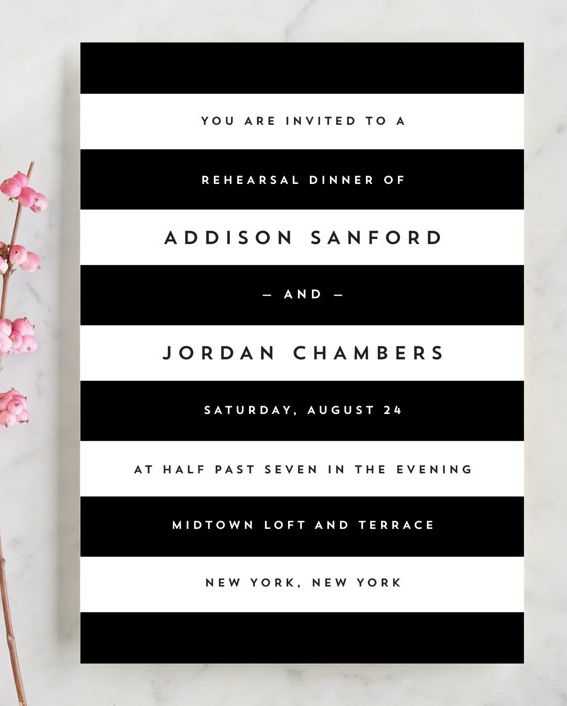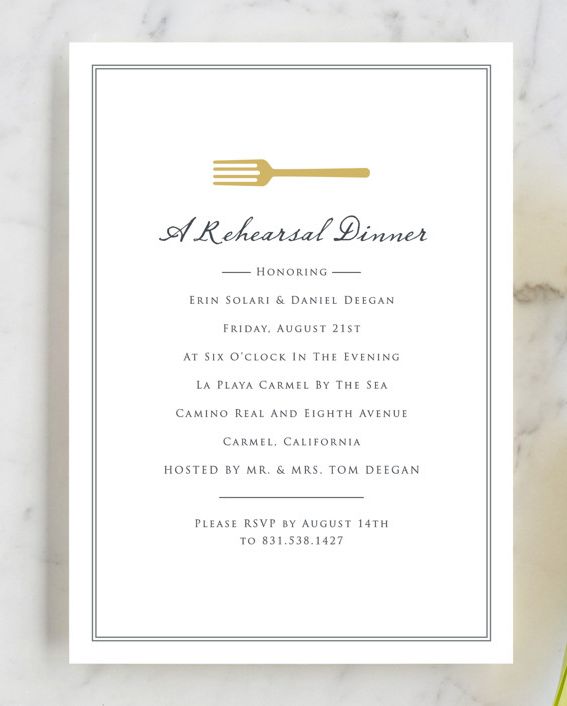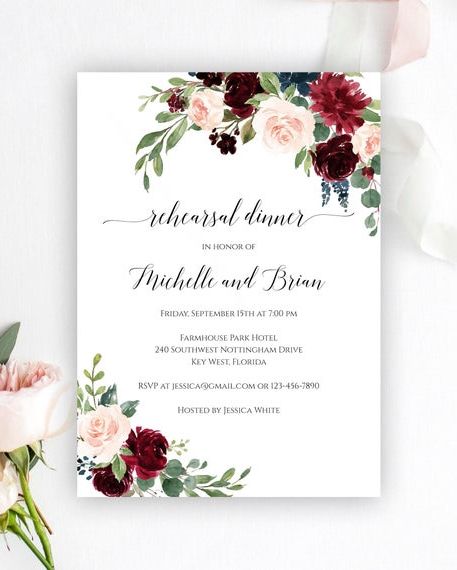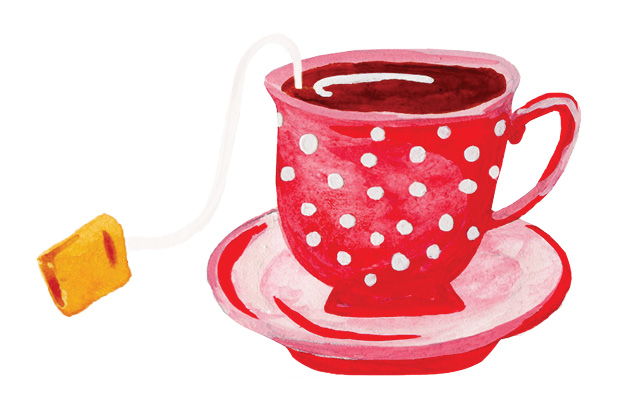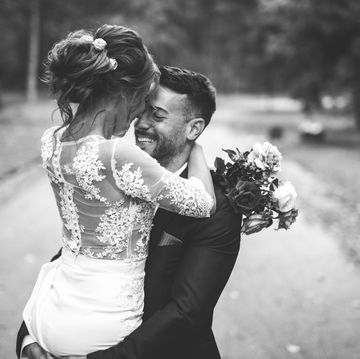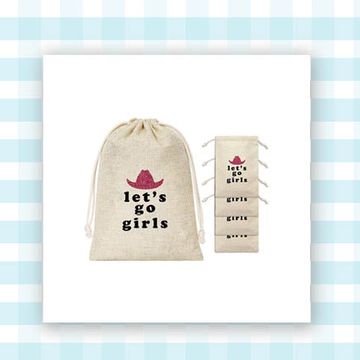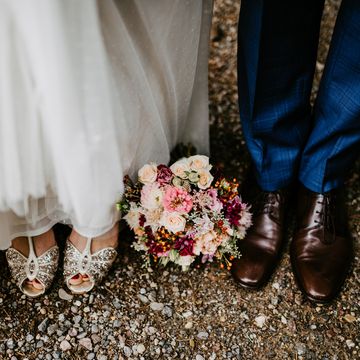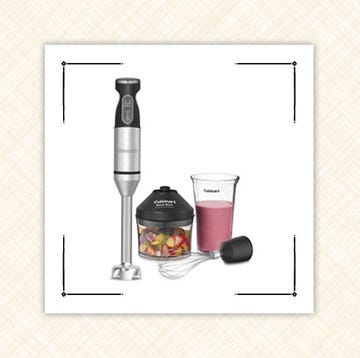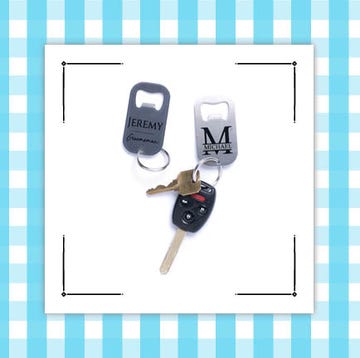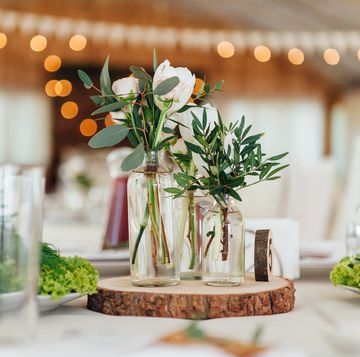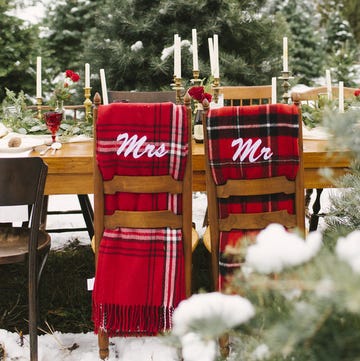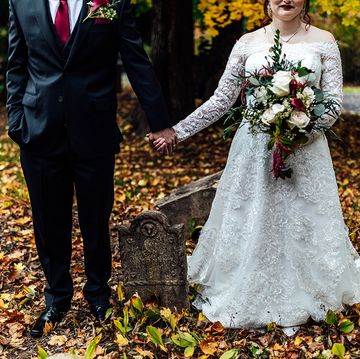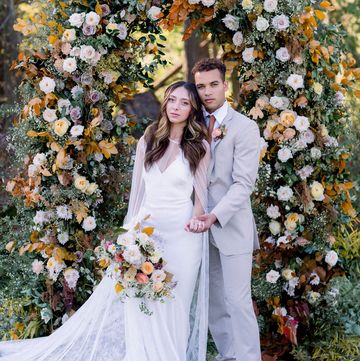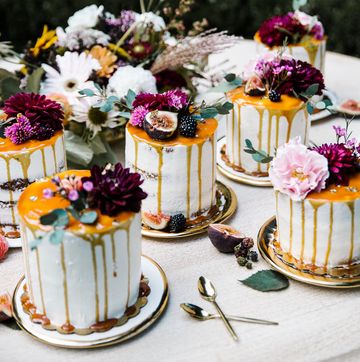We all know that practice makes perfect. The rehearsal for your wedding ceremony, and the rehearsal dinner that follows it, are crucial components of your wedding weekend. But the meal itself should be fairly stress-free, in theory—you’ll be surrounded by your best friends and closest family members as you dine for the last time before getting married. (Not to mention hear heartfelt toasts and speeches from guests other than your parents and wedding party.) While many couples make up their own customs for the celebration these days (which is completely allowed and encouraged), should you want to keep it traditional, there is established rehearsal dinner etiquette you can follow.
But traditional etiquette can come a lot of questions, such as: Who pays? Who's invited? And does that depends on who's paying? How formal does it need to be, and does it need to match the vibe of the wedding itself? We've got all of your rehearsal dinner questions answered here, so that your party can be as enjoyable as possible for everyone and go off without a hitch.
Who to Invite to the Rehearsal Dinner
If you’d like to go with time-honored rehearsal dinner protocol, according to Jacqueline Whitmore, etiquette expert and founder of The Protocol School of Palm Beach, invite everyone in the wedding party to the event. That includes "immediate family members and the officiant and his/her spouse," says Whitmore. “Inviting out-of-town guests—or at least all those who will have already arrived in town for the wedding—is optional. Some couples choose to invite out-of-town guests to the rehearsal dinner as a way of showing appreciation for their travel and time.”
More From Country Living

Just be careful if you decide to make the rehearsal dinner a larger celebration, says Whitmore. You don’t want to upstage your own wedding. It's also perfectly acceptable to have a smaller rehearsal dinner, and then invite guests in town already for drinks and/or dessert afterward at another location, such as the hotel everyone's staying at, or a local bar.
Do You Need to Send Invitations to the Rehearsal Dinner?
If you’re sticking with a smaller rehearsal dinner, there’s really no need to send formal invitations. “It’s pretty self-explanatory who’s invited,” says Whitmore. “But if a bride and groom are asking a lot of out-of-town guests and other people to come, I think they should be invited ahead of time. I would say two to four weeks in advance, at least, although I’m more proactive. I would tell my guests four to six weeks before the rehearsal dinner that they’re invited. You can even do it electronically if you like, via email, or you could do an e-invite.” But still, lots of couples choose to send rehearsal dinner invitations in the mail. It's really up to the formality of the dinner, how many people are attending, and your budget.
Here's Who Hosts and Pays for the Rehearsal Dinner
This is perhaps one of the thorniest issues engaged couples face. However, because the bride’s parents traditionally pay for the wedding, it’s customary for the groom’s parents to host and pay for the rehearsal dinner. Want to go a little more with the flow? Other relatives, close friends, or even the couple themselves can host the event.
“More and more couples are hosting and paying for their rehearsal dinners and weddings because they’re waiting until they’re older to get married,” says Whitmore. “They’re now more financially able to take care of their own wedding expenses and their parents aren’t. To tell you the truth, at my rehearsal dinner, everyone paid for their own meal. I just said we’re all meeting at this restaurant the night before the wedding and you’re welcome to come, and everybody came and paid for their own meals and nobody had a problem with that.” Again, this all depends on the formality desired of your rehearsal dinner, the budget of who is paying, and how large you want it to be. But typically, the host gets the final say in terms of the amount of people on the guest list, since they're the ones paying.
How Formal Should the Rehearsal Dinner Be?
No matter how formal your wedding is, your rehearsal dinner can be as informal as you wish. Hold it a restaurant, in your home, have a barbecue in the park—it’s all perfectly acceptable. “There aren’t really any hard and fast rules for rehearsal dinners,” says Whitmore. “It’s really just a thank you to the people who are in your wedding party and a chance for the couple and their family and close friends to socialize prior to the big event. The rehearsal dinner is often casual, because people usually just want to relax the night before the wedding.” Feel free to put a personal spin on it to make it even more fun. Are you and your soon-to-be spouse on a bowling team? Have it at a local bowling alley. Love craft beer? Host your dinner at your favorite brewery. It doesn't have to be at night either—make it a brunch or lunch if you prefer.
Who Gives the Rehearsal Dinner Toasts?
If you pay for the dinner, you get first dibs on giving the toast at it, according to Whitmore. “For example, if the groom’s parents host the rehearsal dinner, either one or both of them can give a speech to welcome the guests and honor the couple," she says. After the toast, some couples open the floor up to family members, wedding party members, and close friends (maybe ones who hosted your bridal shower or engagement party) who won't be giving speeches on the wedding day.
Illustrations by Mary Fama.

